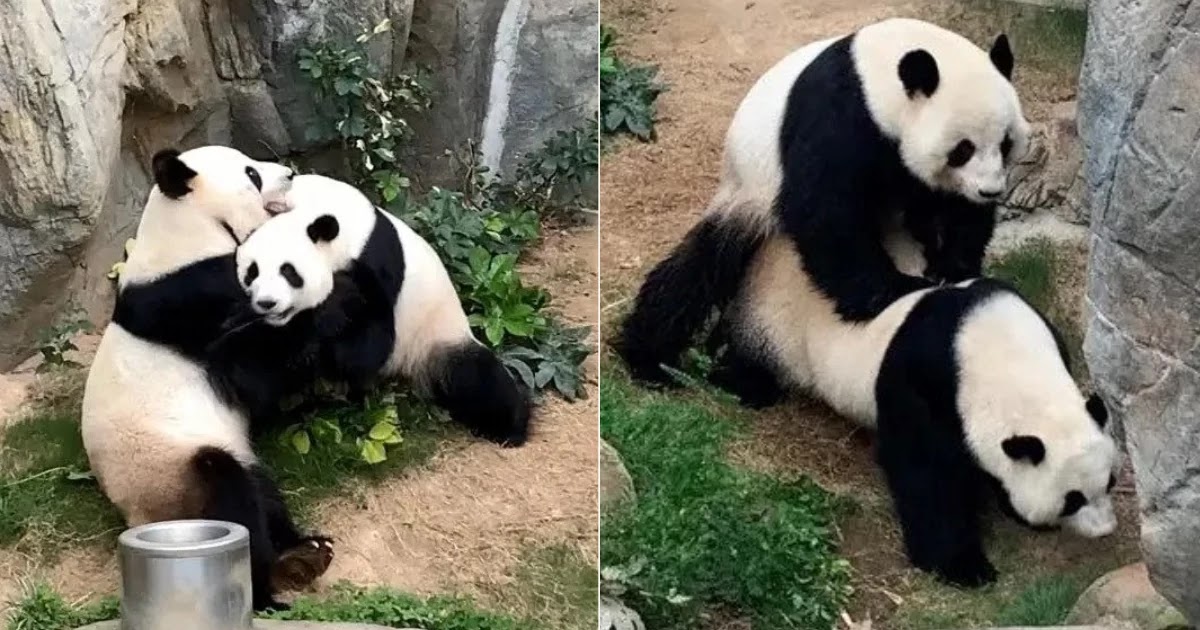
Two giant pandas are finally having sex with one another after 10 years of waiting. For over a decade, handlers at the Ocean Park Zoo in Hong Kong have been trying to breed the pair but to no avail, that was until last Monday.
Just one week ago they were spotted mating for the first time, to the delight of the zoo who hope that baby pandas may be on their way. The pair are both 14 year olds, the male Le Le and the female Ying Ying, and are thought to have possibly got into the mood due to the zoo being much quieter. While their enclosure would normally be bustling with visitors, the CoVid-19 pandemic has kept the zoo quiet and this may have allowed the pandas to make their move.
Wholesome quarantine footage: Giant panda Ying Ying and Le Le in Hong Kong did what many people do under #coronavirus lockdown, do what comes naturally...for the very 1st time in a decade for this panda couple pic.twitter.com/kNH5bDrbgQ
— Carl Zha (@CarlZha) April 6, 2020
In the last month, it had been observed that the pandas had been much more playful and that Le Le had been leaving scent markings. Classic behaviour of mating pandas in the wild.
The executive director of Ocean Park, Michael Boos, said in a statement that,
“The successful natural mating process today is extremely exciting for all of us, as the chance of pregnancy via natural mating is higher than by artificial insemination. We hope to bear wonderful pregnancy news to Hong Kongers this year and make further contributions to the conservation of this vulnerable species.”
Whether or not the mating will lead to baby pandas will be found out in about 14 to 17 days. To confirm this the female panda Ying Ying will need to undergo an ultrasound. While adults can weigh between 70 and 100Kgs, the babies when born are tiny, weighing just 100 to 200 grams and are about 6 inches long. The babies tend to live with their mothers for 2 years before they leave to fend on their own.
Pandas are notoriously difficult to breed in captivity – a point that has brought huge frustration to conservationists. Animals who feed almost exclusively on bamboo are considered endangered due to the loss of habitat and it is believed that there are only around 1,800 giant pandas currently in the wild. There are a further 500 who reside in zoos and safari parks around the world. Any addition to their numbers is, therefore, greatly welcomed.
Perhaps, if the breeding is successful, it will give other conservationists the knowledge that quieter, more secluded habitats for pandas, may be key to encouraging their breeding numbers.
We are hoping for good news!













COMMENTS